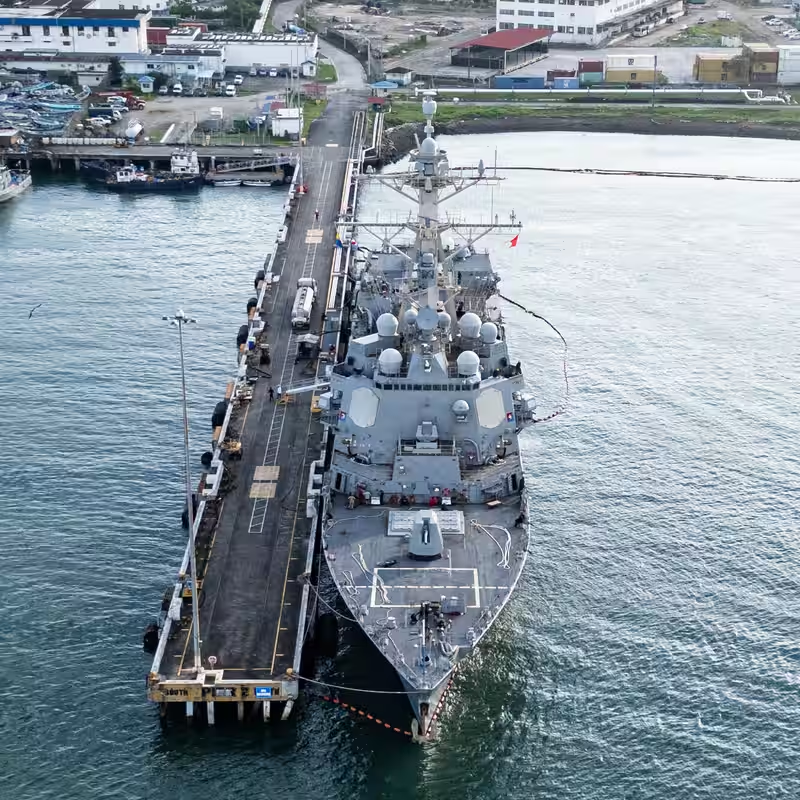A U.S. military strike in the Caribbean Sea has killed three individuals aboard a boat suspected of smuggling narcotics for the National Liberation Army (E.L.N.), a Colombian Marxist rebel group, according to Defense Secretary Pete Hegseth. The Friday attack marks the seventh known lethal operation in President Donald Trump’s controversial campaign to treat drug smugglers as wartime combatants rather than criminals .
Table of Contents
- The Latest Strike: What We Know
- Trump’s “War on Cartels” Policy
- Legal and Ethical Questions
- Escalating Tensions with Colombia
- Expert and International Reactions
- Sources
The Latest Strike: What We Know
On Friday, October 17, 2025, a U.S. military asset—likely a drone or naval vessel—targeted a small boat traveling along a known drug trafficking corridor in the Caribbean. Defense Secretary Hegseth claimed the vessel was linked to the E.L.N. and carried “substantial amounts of narcotics.” No physical evidence was presented, but a 27-second surveillance video released by the Pentagon shows the boat followed by a fiery explosion .
This incident brings the total number of confirmed deaths in the Trump administration’s Caribbean drug interdiction campaign to 32 since early September.
Trump’s “War on Cartels” Policy
The Trump administration has redefined its approach to transnational drug trafficking by declaring an “armed conflict” with select Latin American cartels and insurgent groups. By labeling them “terrorists,” the White House argues that crews on suspected drug boats are “unlawful combatants” who can be killed without arrest or trial .
In a dramatic statement, Hegseth called these organizations “the Al Qaeda of the Western Hemisphere,” vowing they “will be hunted, and killed, just like Al Qaeda.” Experts note, however, that no actual Al Qaeda affiliate operates in the region—the comparison appears rhetorical, not factual .
Legal and Ethical Questions
Legal scholars and human rights advocates have raised serious concerns about the legality of these strikes. Unlike the post-9/11 Authorization for Use of Military Force (AUMF) against Al Qaeda, Congress has never authorized military action against drug cartels or Marxist insurgents in Latin America—even those designated as Foreign Terrorist Organizations, like the E.L.N. .
Designating a group as a terrorist organization under U.S. law allows for asset freezes and travel bans—but not lethal military force. “This is a legal fiction,” said Colin P. Clarke of the Soufan Center. “It’s political framing to justify escalation without congressional approval.”
Escalating Tensions with Colombia
The strike comes amid a public feud between President Trump and Colombian President Gustavo Petro. On Saturday, Petro accused the U.S. of killing an innocent fisherman in a previous strike. Trump fired back on social media, calling Petro “an illegal drug leader” and announcing the suspension of U.S. foreign aid to Colombia .
“Petro… better close up these killing fields immediately,” Trump warned, “or the United States will close them up for him—and it won’t be done nicely.”
Adding to the tension, a Colombian national, Jeison Obando Pérez, was recently repatriated after surviving a U.S. attack on a semi-submersible vessel. He remains hospitalized with severe brain trauma but is expected to face drug trafficking charges in Colombia .
Expert and International Reactions
Analysts warn that militarizing drug enforcement risks civilian casualties, diplomatic fallout, and mission creep. “Equating profit-driven cartels with ideologically motivated terrorist groups like Al Qaeda is not just inaccurate—it’s dangerous,” said Clarke.
Similar rhetoric has been used by other Trump officials. Homeland Security Secretary Kristi Noem recently compared Antifa to Hezbollah and ISIS—a move widely criticized as inflammatory and misleading.




